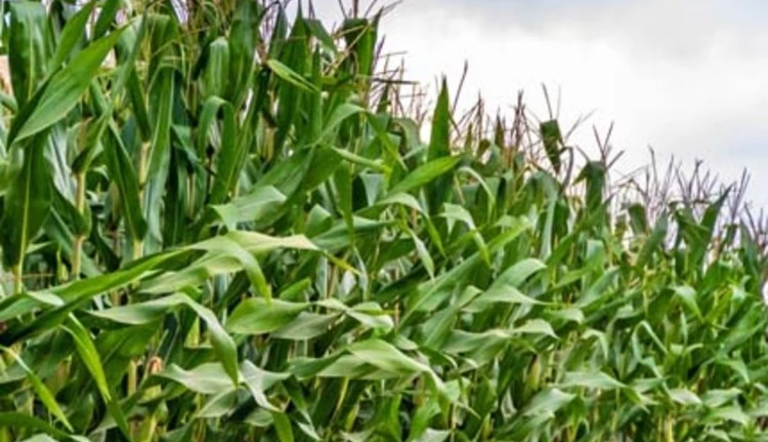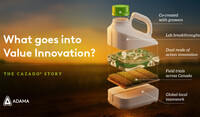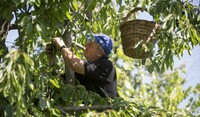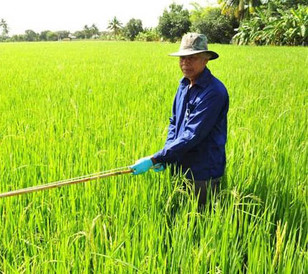
A global effort to minimize risks to food security

Pests
A large swathe of farmland stretching from East Africa through to India has been plagued by locusts over the last few months. Kenya has seen its worst outbreak of the insects in 70 years, with India and Pakistan hit in May. The UN Food and Agriculture Organisation estimates that an average-sized swarm of 40 million locusts can eat as much volume as 35,000 people¹. The organisation says, that uncontrolled, the insects threaten farmland in 90 countries.
Pesticides are essential in controlling locusts. The early and targeted use of appropriate products prevents swarms developing and limits the amount of product needed. The UN FAO works with national governments and farmers to help put control measures in place as early as possible.
Disease
The Covid-19 pandemic shows how a virus or disease can quickly spread across the world. Greater connectivity may bring lots of benefits, but it also increases the risk of a disease being spread. This can apply to crops too. A new strain of wheat stem rust, Ug99, was found in Uganda a little more than 20 years ago and has since spread to more than 30 countries².
The control of pests and disease is essential if the world is to be food secure. A 2019 study published in Nature Ecology & Evaluation calculated that disease and pests caused yield losses of more than 20% in wheat, maize, rice and soybeans³.
Water
In addition to these issues above, the world is using six times as much water as it did 100 years ago, according to the UN, with the rate of growth at 1% a year. In its recent World Water Day report, the organisation said that climate change makes the world less water secure increasing both droughts and flooding ⁷. It urged countries adapt their water system to mitigate the impact of greater use and climate change. Because agriculture uses 70% of freshwater withdrawals ⁸, it has a greater responsibility to improve the way it uses water than other industries. Real, tangible progress is being made:
Swiss company Aqua4D is working with a range of partners, including the European Union, to improve water efficiency in agriculture. Working in more than 40 countries, it claims that more precise use of water can increase yields while reducing water use by 30%. https://aqua4d-irrigation.com/
Non-profit organisation, The Water Footprint Network has a vision of ensuring the sharing of clean fresh water fairly amongst all people to sustain thriving communities and nature’s diversity. It does this by increasing knowledge and awareness of water supplies on farms across the world. This includes a Water Footprint Assessment Tool, where users can access more than 15 years of water data https://www.waterfootprintassessmenttool.org/
What all these threats to food security have in common is that they are global in nature. Like coronavirus, no country is immune from them and they will only be managed if each country and each farmer works together while taking responsibility for improving their own way of doing business. If a new spirit of collaboration and innovation is the long-term lesson from the pandemic, then it will be a valuable one.
¹ UN FAO http://www.fao.org/food-chain-crisis/how-we-work/plant-protection/locusts/en/
² UN FAO http://www.fao.org/agriculture/crops/rust/stem/rust-report/stem-ug99racettksk/en/
³ Nature Ecology & Evolution https://www.nature.com/articles/s41559-018-0793-y
⁴ Nature Climate Change https://www.nature.com/articles/s41558-020-0797-x
⁵ National Oceanic and Atmospheric Administration https://www.esrl.noaa.gov/gmd/ccgg/trends/monthly.html
⁶ EC Climate Change Service https://climate.copernicus.eu/surface-air-temperature-april-2020
⁷ UNESCO https://en.unesco.org/themes/water-security/wwap/wwdr/2020
⁸ World Bank https://www.worldbank.org/en/topic/water-in-agriculture
Image Gallery
Related Articles

Partnership that Grows Together: ADAMA Romania’s Collaborative Edge

How the Cazado® Launch Embodies Value Innovation

